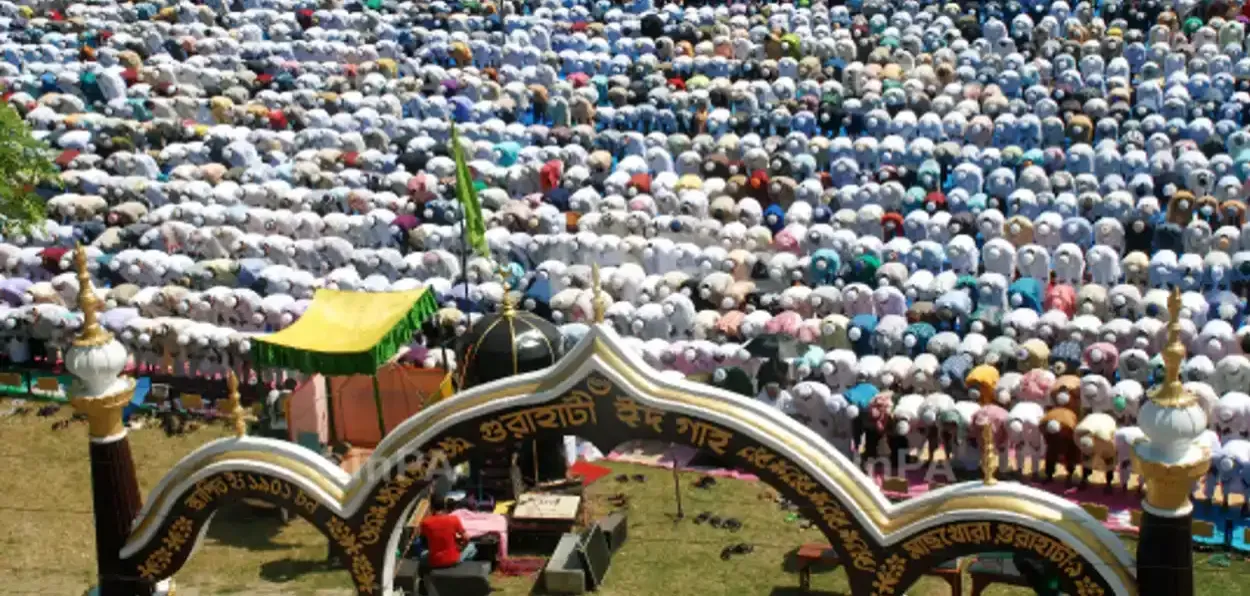
Jhumur Deb/Guwahati
As the final phase of the Lok Sabha elections in Assam approaches, the spotlight once again turns to the political relevance of the Muslim minority in the state.
With Assam boasting the second-largest Muslim population in India after Uttar Pradesh, comprising nearly 34 percent of the electoral base, their sway cannot be overlooked in the state's political landscape.
Amid a 'polarized' environment, the direction in which the Muslim minority leans remains a pivotal question. This election holds the key to determining the allegiance of Muslim voters, with various political dynamics at play.
The emergence of the All India United Democratic Front (AIUDF) led by perfume magnate Badruddin Ajmal in 2005 reshaped Assam's political dynamics, particularly in the wake of the scrapping of the Illegal Migrants (Determination by Tribunal) Act.
AIUDF's rise was facilitated by Congress' strategy of soft Hindutva, aiming to garner Muslim support. However, this inadvertently paved the way for BJP's ascendancy, culminating in its government formation in 2016. Congress, losing a significant portion of Muslim votes to AIUDF, faces a crucial test in regaining its support in the current elections.
AIUDF chief Badruddin Ajmal campaigning
Initially positioning itself as a protector of immigrant Muslim rights, AIUDF's influence has plateaued over time, with both national parties, Congress and BJP, distancing themselves.
The narrative of Muslim politics in Assam has garnered national attention, with All India Majlis-e-Ittehadul Muslimeen (AIMIM) chief Asaduddin Owaisi's call to vote for AIUDF adding another layer to the complex electoral landscape.
Congress, on the other hand, frames the election as a choice between Muslim interests and others, positioning itself as the champion of minority rights against what it alleged as BJP's perceived communal agenda.

Muslim women in Assam waiting for their turn to vote (File)
Despite constituting over a third of the state's population, AIUDF's electoral success has been modest, securing only around 13 percent of the vote in recent elections. This disparity highlights the challenges in mobilizing Assam's diverse Muslim populace, divided between indigenous and immigrant communities.
The United Minority Front (UMF), formed in 1985, aimed at consolidating Muslim political representation but similarly faced limitations in inclusivity. The repeal of the IM (DT) Act further shifted the political landscape, with Congress attempting to unite Hindu votes against AIUDF, albeit with limited success.
BJP's narrative of Hindu insecurity in Assam and its opposition to AIUDF's perceived Muslim dominance has resonated with certain segments of the electorate. However, AIUDF's attempts to leverage communal polarization have also fueled BJP's electoral gains.
The socio-political dynamics in Assam, compounded by BJP's hard Hindutva stance and its impact on AIUDF's electoral fortunes, underscore the intricacies of Muslim political relevance in the state. The BJP government's policies, perceived as alienating Muslims, have created openings for AIUDF to assert its position in Assam's political arena.
ALSO READ: Dr. Ijaz Ali is a surgeon who treats poor and seeks justice for Pasmanda Muslims
As Assam braces for the final phase of elections, the contest for Muslim votes remains a linchpin in shaping the state's political future. The outcome will not only determine the electoral fate of parties but also reflect the evolving dynamics of minority representation and Muslim politics in Assam.
